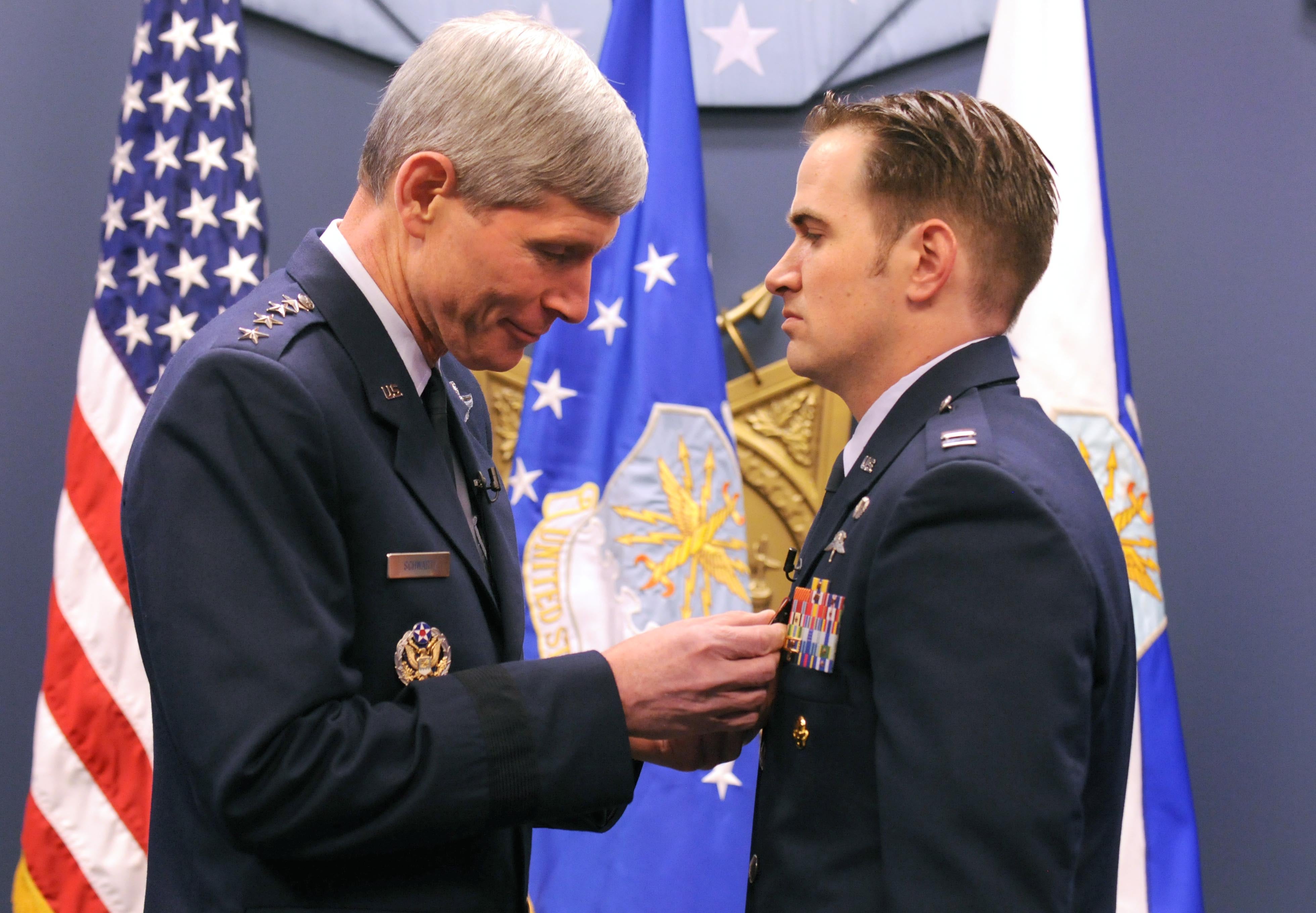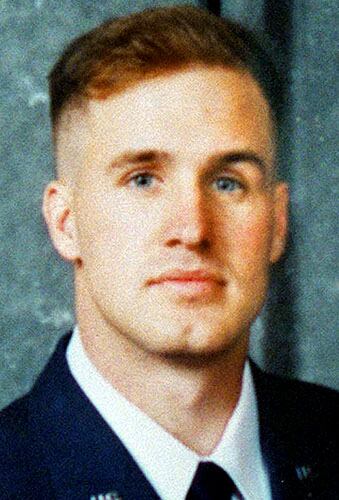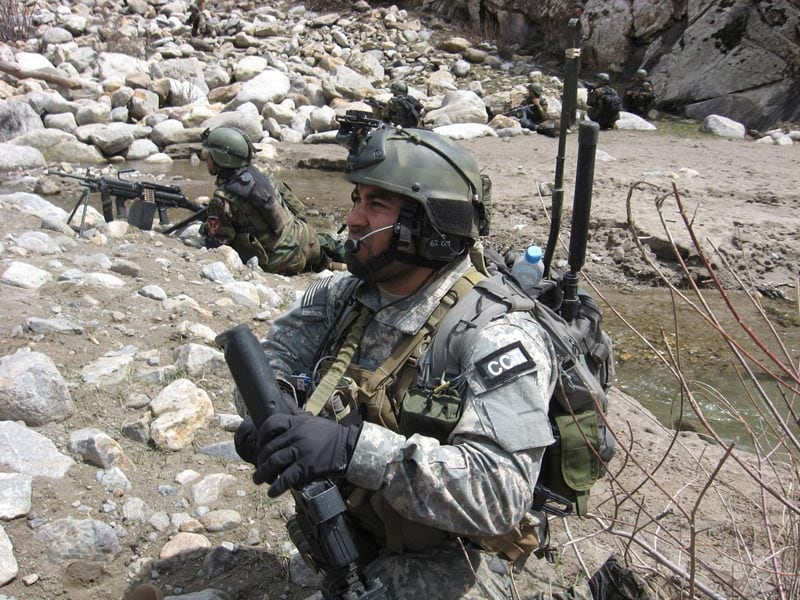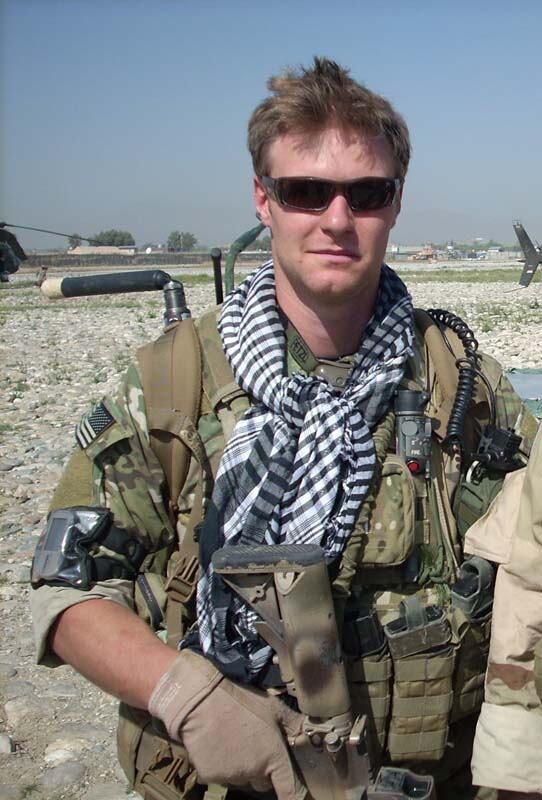In addition to Senior Airman Dustin Temple, who received the Air Force Cross on May 6, six other airmen have received the medal since 9/11:
Tech. Sgt. John Chapman became the first Air Force combat controller to be awarded the Air Force Cross when he received the award posthumously for his actions at the famous Battle of Robert's Ridge in Gardez, Afghanistan, on March 4, 2002. After his helicopter was hit by a rocket, Navy SEAL Neil Roberts fell out and landed in an enemy stronghold. Roberts fought the al-Qaida and Islamic Movement of Uzbekistan fighters alone and was killed.
The helicopter with the rest of the team crash-landed about 7 kilometers away. On the ground, Chapman called in fire from an AC-130 gunship to keep the enemy at bay. The gunship also located Roberts. After helping a helicopter to land and pick up the rest of the team, Chapman volunteered to help rescue Roberts. But once the rescue team arrived on the scene, they came under fire from three directions. Chapman died fighting the enemy at close range and out in the open, allowing his teammates to find cover, saving their lives.

Then-Air Force Chief of Staff Gen. Norton Schwartz presents the Air Force Cross to Capt. Barry F. Crawford Jr.
Photo Credit: Staff
Capt. Barry Crawford Jr. was with a Special Forces team and Afghan troops on May 4, 2010, when they were ambushed by more than 100 fighters near the village of Hendor, Afghanistan. Crawford ran into the open to save wounded Afghan troops and call in strafing attacks from AH-64 Apache helicopters while shooting at the enemy with his rifle.
As the U.S. and Afghan troops left, they were ambushed and pinned down in steep terrain with little or no cover. The enemy was as close as 150 meters away. Crawford slogged through the kill zone for 1.5 kilometers to fire on enemy positions while coordinating more strafing runs from Apaches and F-15E Eagles. Ultimately, he called in more than 40 airstrikes from more than 33 aircraft.

Senior Airman Jason D. Cunningham.
Photo Credit: The Associated Press
Senior Airman Jason Cunningham posthumously received the Air Force Cross for his actions during the Battle of Robert's Ridge. On March 4, 2002, he was a pararescue jumper with the 38th Rescue Squadron, 247th Special Operations Group when his helicopter crash-landed after being hit by a rocket.
Once on the ground, three U.S. troops were killed and five were critically wounded. Cunningham stayed in the helicopter's burning fuselage to treat the wounded and then moved them to safety. When mortar rounds started landing within 50 feet of the wounded, he exposed himself to enemy fire seven times to move the wounded again. He braved intense enemy fire to move the wounded for a third time, during which he was wounded. As he was dying, he continued to help move the wounded and handed off care to another medic. He is credited with saving 10 critically wounded U.S. troops.

Staff Sgt. Robert Gutierrez Jr. (foreground).
Photo Credit: Air Force
Staff Sgt. Robert Gutierrez Jr. helped save the lives of his teammates by calling in danger-close airstrikes, despite being shot in the chest. On Oct. 5, 2009, Gutierrez was a combat controller with a Special Forces team that tried to capture a senior Taliban leader in Herat Province, Afghanistan. His 10-man assault team became pinned down in a building with no escape route.
Despite the great pain he was in, Gutierrez called in three strafing runs from A-10s against the enemy fighters, which were only 3 feet away. After the first attack, a team medic reinflated Gutierrez's collapsed lung so that he could keep talking to the A-10s. After a four-hour battle, his team was able to escape.

Staff Sgt. Zachary Rhyner
Photo Credit: Air Force
Senior Airman Zachary Rhyner was serving with 40 U.S. troops and about 100 Afghan commandos on April 6, 2008, in Nuristan Province, Afghanistan. They were targeting a terrorist group linked to al-Qaida and the Taliban. Rhyner and his teammates were scaling a cliff when they came under fire from all directions. They found themselves trapped 60 feet up the side of the cliff.
A bullet grazed Rhyner's thigh when the shooting started. During the 61/2-hour battle, Rhyner exposed himself to the wall of enemy fire to shoot back at enemy positions and call in more than airstrikes from F-15Es, A-10s and Apache helicopters, which twice prevented the U.S. and Afghan troops from being overrun. He and his teammates were ultimately able to jump and slide down the cliff, and Rhyner called in an airstrike that destroyed the terrorists' compound. It is believed that more than 150 enemy fighters were killed in the battle.

Master Sgt. Ivan Ruiz
Photo Credit: Courtesy photo Master Sgt. Ivan Ruiz
Master Sgt. Ivan Ruiz was serving with Special Forces troops on Dec. 10, 2013, in Kandahar Province, Afghanistan, when he and two teammates got separated from the rest of their group and were attacked by four insurgents.
After killing the insurgents, Ruiz and the two soldiers were caught in intense crossfire from enemy fighters shooting and throwing grenades at them.
When the two soldiers were wounded, Ruiz sprinted into the intense enemy gunfire to keep the enemy from advancing on them. During the firefight, Ruiz had to lie flat on the ground as grenades blew up around him. He kept the enemy at bay until reinforcements arrived, allowing him to run to the wounded soldiers, drag one of them to safety and give them life-saving medical treatment.





